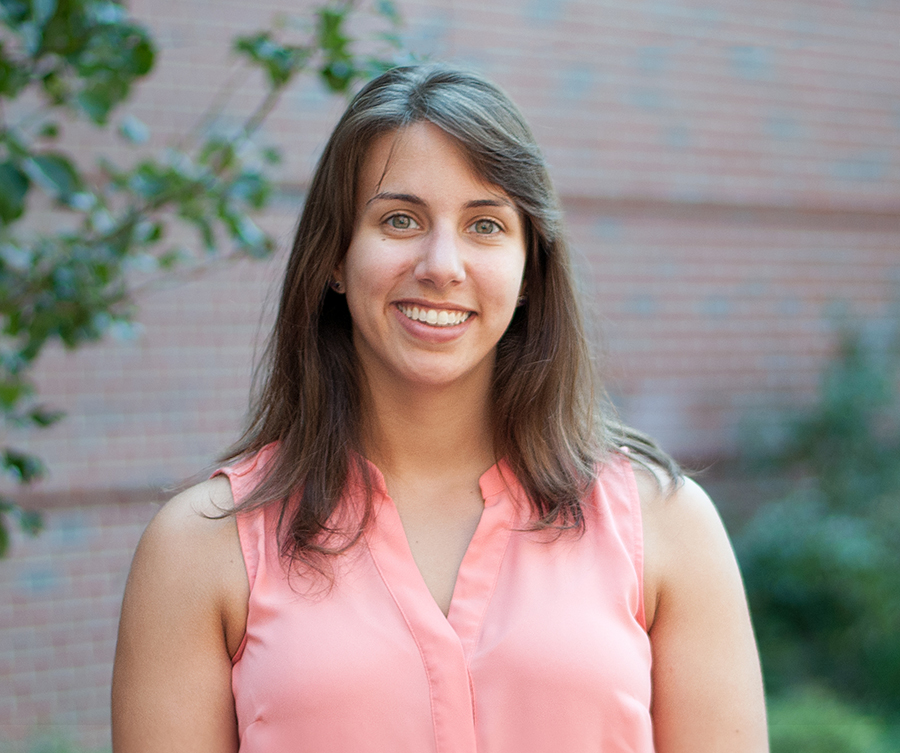Student Spotlight: Calyn Maske

Calyn Maske is a doctoral student in the Program in Neuroscience, part of the College of Arts and Sciences at Florida State University. Maske is a recent recipient of the Interdisciplinary Clinical Neuroscience training grant funded by the National Institutes of Health. She is the co-author of six publications to date and is currently working on her dissertation and research with Diana Williams, associate professor of psychology and neuroscience.
Where are you from? Tell us about your academic credentials.
I grew up in Racine, Wis. I graduated from the University of Minnesota in 2014 with a bachelor’s degree in neuroscience, and I’m currently in my final year of doctoral studies in the Program in Neuroscience here at FSU and set to graduate in Spring 2020.
What brought you to FSU?
I chose to join the neuroscience program at FSU because I was interested in the work conducted by Dr. Diana Williams, which focuses on the brain circuits and mechanisms that influence eating. Furthermore, the Department of Psychology and neuroscience program are home to a strong group of faculty members, who are highly regarded in the field of ingestive behavior, making it an exciting training environment.
What inspired your specific area of research?
Taking neuroscience courses and getting involved in neuroscience research as an undergraduate introduced me to the idea that our brain controls everything that we do, and that conversely, our brain can be changed as a result of our experiences. My focus on ingestive behavior stems from this idea. I am interested in understanding how our brain influences what we eat, when we eat, and how much we eat and how our eating habits can consequently change the way the brain responds to food in the future.
What aspect of neuroscience do you find most fascinating?
That something so seemingly insignificant as the action of neurochemicals influencing neuron activity in a single brain area can impact the behavior of an entire animal is really fascinating to me.
Describe your experience working alongside Williams in her laboratory.
Working in the Williams laboratory has been such an enriching and fun experience. Throughout my graduate work, Dr. Williams has guided me in developing projects, designing and troubleshooting experiments, and interpreting our findings. We also meet regularly to discuss project-related literature, and together we have prepared several presentations and published manuscripts. I am fortunate to be part of an intelligent, motivated and enthusiastic team whose help and input have shaped my work and scientific development.
How has Williams inspired you? Are there any other faculty/staff who have contributed to your experiences at FSU?
Dr. Williams has many innovative hypotheses about the neural systems that influence feeding. She focuses on understanding how these systems are engaged and how they normally function during feeding behavior. From her mentorship I have learned to choose and pursue my scientific questions with rigor, to always think about physiology and, importantly, to be proud of my work.
I am grateful to so many individuals for their help and inspiration throughout my graduate career. The faculty, staff and students in the program foster such a supportive and collaborative environment that really make it a special place to work.
Tell us about the training grant you received from NIH. What does receiving this grant mean for your research and career?
In 2018, I applied and was awarded the Integrated Clinical Neuroscience training fellowship, an NIH-funded training program at FSU for clinical psychology and neuroscience Ph.D. students to lead translational research projects aimed at understanding mental disorders marked by dysregulated behavior. My research focuses on better understanding how dysfunction in the biological controls of feeding may contribute to the development, maintenance and correction of eating disorders. For example, we know that in healthy individuals, the gut releases hormones that contribute to the feeling of fullness (also known as satiation) during a meal and the decision to stop eating. My dissertation research investigates the hypothesis that reduced satiation contributes to the overconsumption of food, with a specific focus on binge eating behavior.
The fellowship has allowed me to collaborate with Dr. Pamela Keel’s clinical laboratory to examine the physiology associated with disordered eating behavior in humans. This experience has expanded my research perspective and enhanced my ability to implement and conduct studies in an animal model, which will be more translationally applicable to human health.
What do you do when you are not working in the lab or working on your dissertation?
Outside of work I really enjoy cooking, reading and exploring the many parks and trails in Tallahassee.
Upon receiving your doctorate, what are your plans? How do you hope to celebrate?
I will be pursuing postdoctoral training so I can continue to expand my technical and conceptual skillset. To celebrate completing my dissertation, I’ll be going on a family vacation to the Florida Keys!
What advice do you have for your fellow students or prospective students interested in your field?
Stay curious, believe in yourself and have fun!

